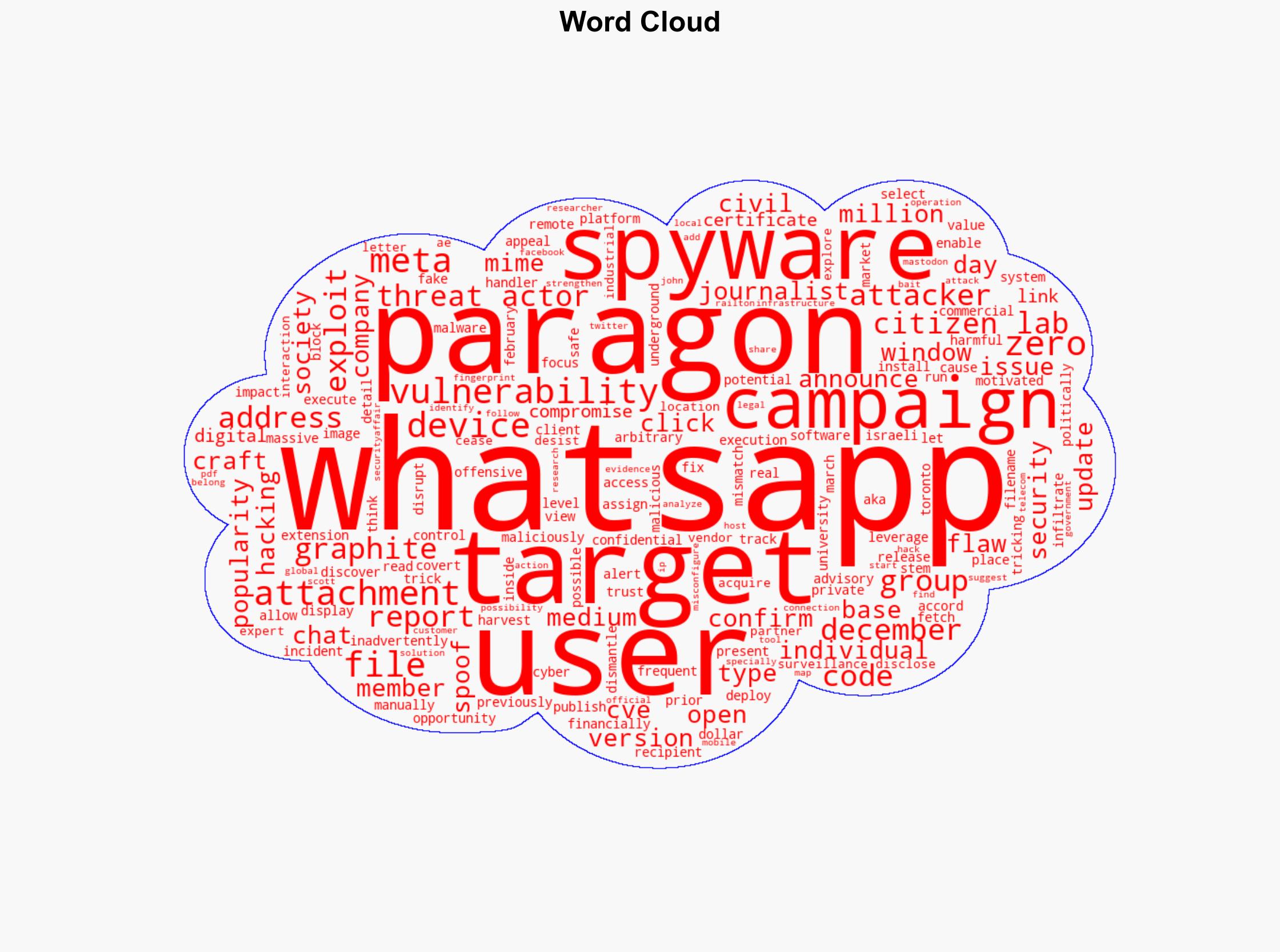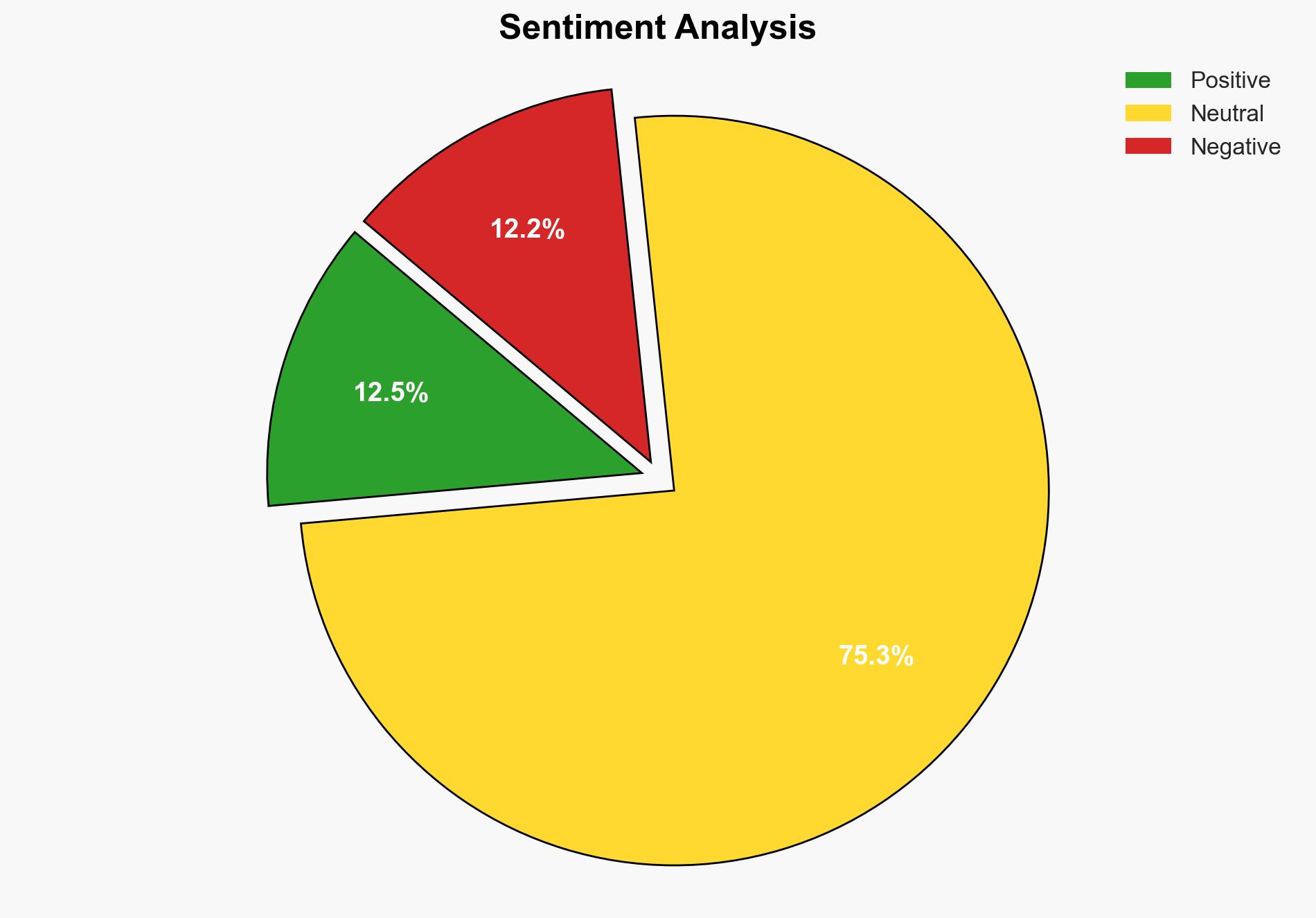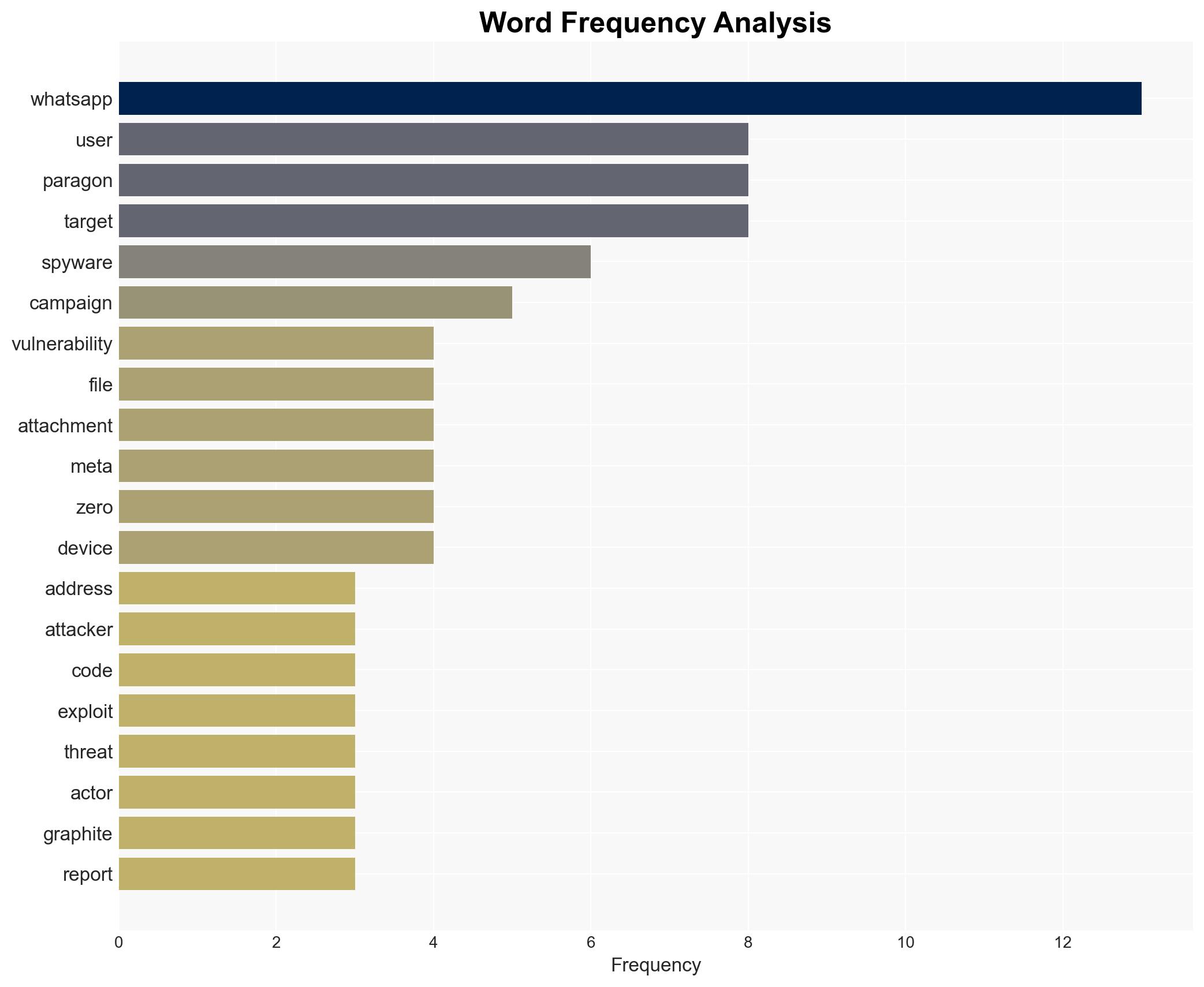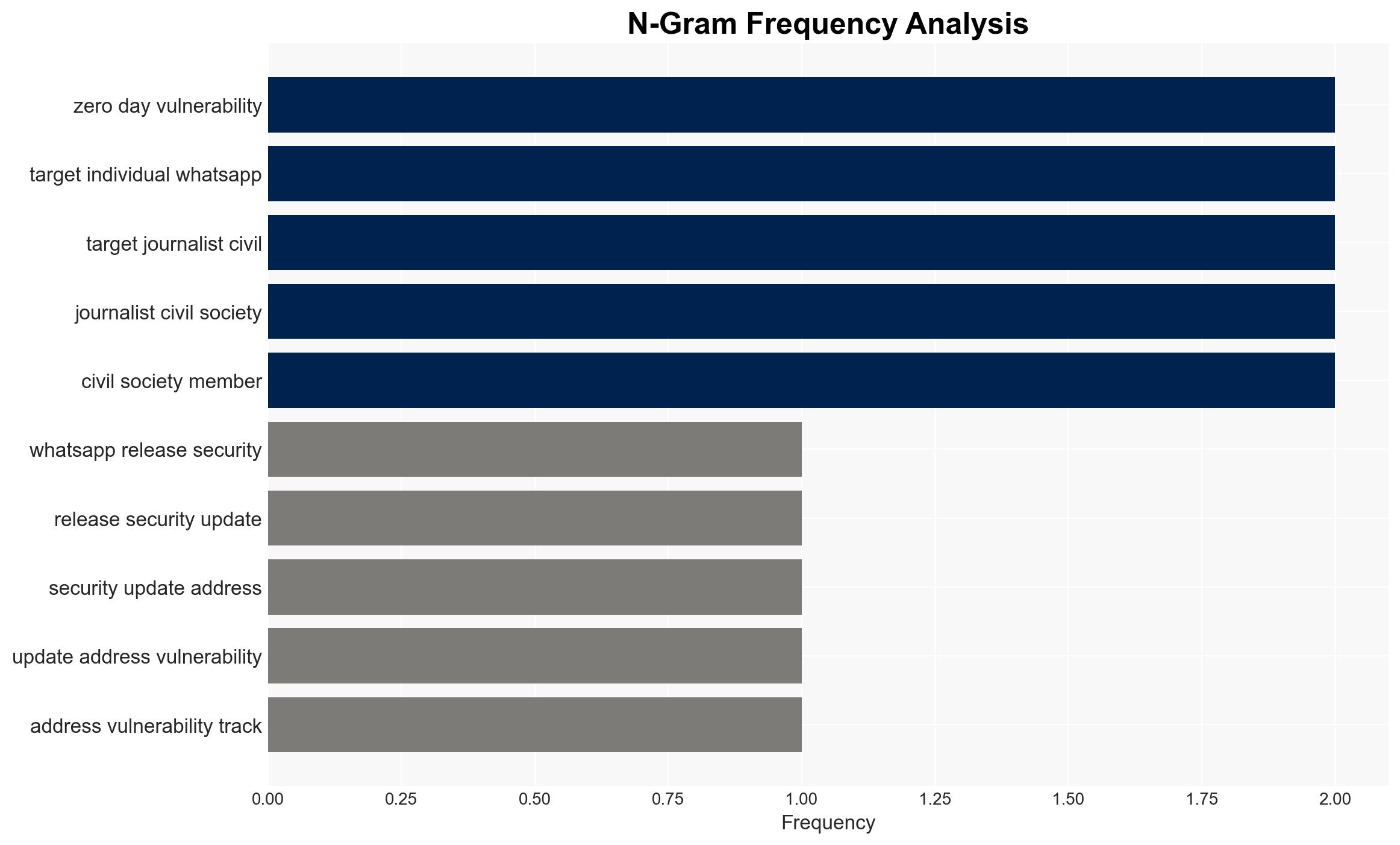WhatsApp fixed a spoofing flaw that could enable Remote Code Execution – Securityaffairs.com
Published on: 2025-04-08
Intelligence Report: WhatsApp Fixed a Spoofing Flaw That Could Enable Remote Code Execution – Securityaffairs.com
1. BLUF (Bottom Line Up Front)
WhatsApp has addressed a critical vulnerability tracked as CVE, which allowed attackers to execute remote code by tricking users with spoofed files. This flaw primarily impacted WhatsApp’s Windows version and was resolved in a December client update. The vulnerability posed significant risks due to WhatsApp’s extensive user base and the potential for exploitation by financially and politically motivated threat actors. Meta has confirmed the issue’s resolution and dismantled a related malware campaign targeting journalists and civil society members.
2. Detailed Analysis
The following structured analytic techniques have been applied for this analysis:
General Analysis
The vulnerability allowed attackers to send files with fake MIME types, misleading users into executing malicious code. The spoofing flaw affected versions of WhatsApp for Windows prior to the update. The exploitation involved crafting mismatched attachments that appeared safe but executed arbitrary code upon opening. This incident underscores the persistent threat of cyber-attacks on popular platforms like WhatsApp, which are attractive targets due to their widespread use and potential for covert access to sensitive information.
3. Implications and Strategic Risks
The exploitation of this vulnerability could have led to significant breaches of personal and organizational data, posing risks to national security and regional stability. The incident highlights the ongoing threat of zero-day vulnerabilities and the lucrative market for such exploits. The potential for these vulnerabilities to be used in targeted attacks against journalists and civil society members further emphasizes the need for robust cybersecurity measures.
4. Recommendations and Outlook
Recommendations:
- Enhance security protocols for messaging applications, particularly focusing on file handling and MIME type verification.
- Implement regular security audits and updates to address potential vulnerabilities proactively.
- Encourage collaboration between technology companies and cybersecurity researchers to identify and mitigate threats swiftly.
Outlook:
In the best-case scenario, continued vigilance and prompt updates will mitigate similar vulnerabilities, maintaining user trust and platform integrity. In the worst-case scenario, failure to address such vulnerabilities could lead to widespread exploitation and significant data breaches. The most likely outcome is a balanced approach where ongoing security enhancements and user education reduce the risk of exploitation.
5. Key Individuals and Entities
The report mentions significant individuals and organizations, including John Scott Railton and the Citizen Lab group. These entities played a role in analyzing the attack and sharing findings with WhatsApp. The report also references the Paragon spyware campaign, which targeted journalists and civil society members.




